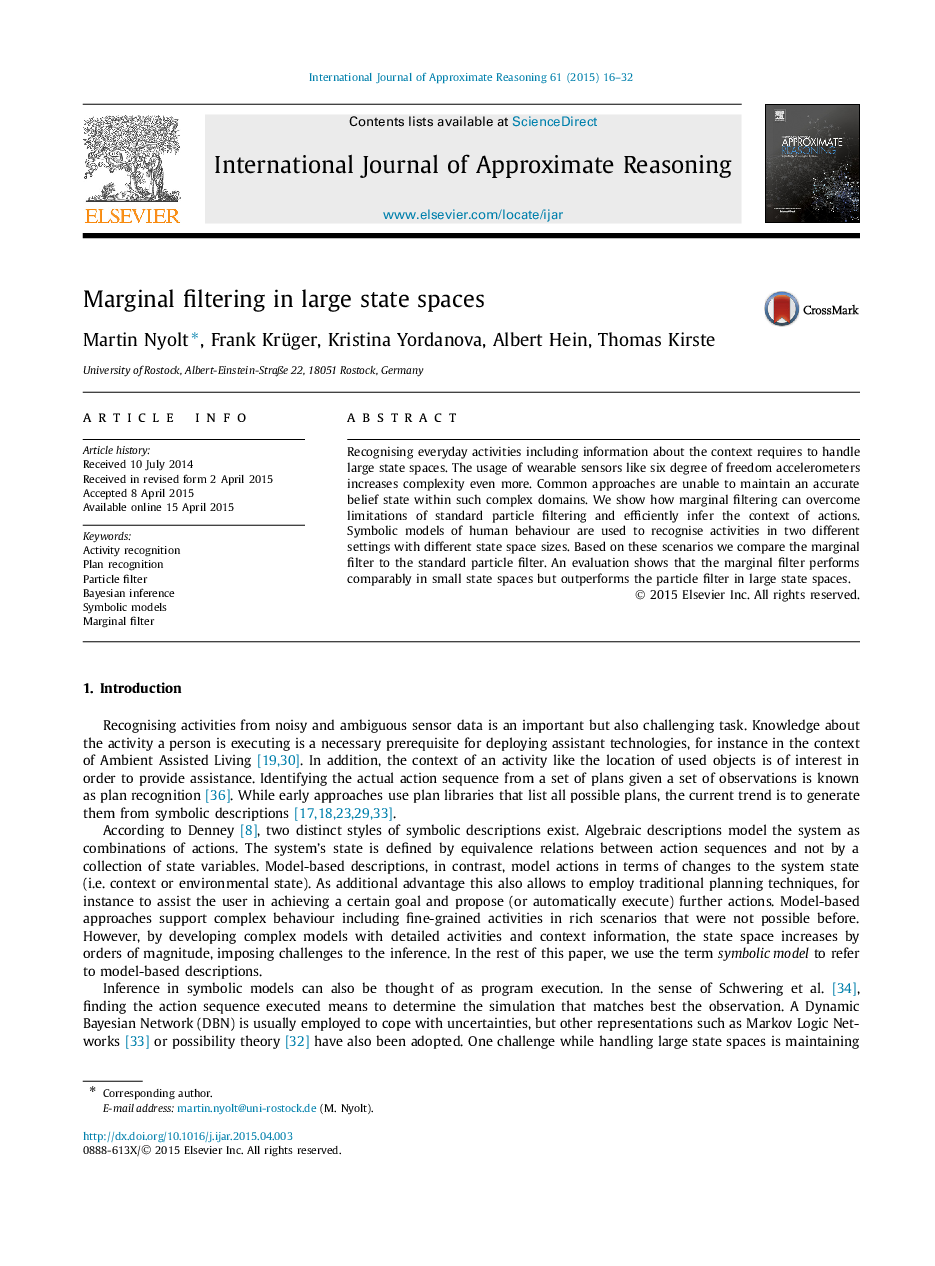| Article ID | Journal | Published Year | Pages | File Type |
|---|---|---|---|---|
| 396954 | International Journal of Approximate Reasoning | 2015 | 17 Pages |
•We describe the marginal filter for activity recognition using symbolic models.•The marginal filter allows fine-grained activity recognition using wearable sensors.•We identify and discuss advantages over particle filters for symbolic models.
Recognising everyday activities including information about the context requires to handle large state spaces. The usage of wearable sensors like six degree of freedom accelerometers increases complexity even more. Common approaches are unable to maintain an accurate belief state within such complex domains. We show how marginal filtering can overcome limitations of standard particle filtering and efficiently infer the context of actions. Symbolic models of human behaviour are used to recognise activities in two different settings with different state space sizes. Based on these scenarios we compare the marginal filter to the standard particle filter. An evaluation shows that the marginal filter performs comparably in small state spaces but outperforms the particle filter in large state spaces.
